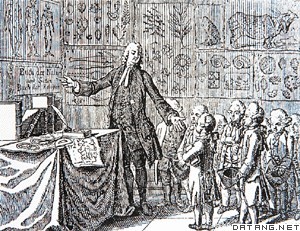1) education of philanthropists


泛爱主义教育
2) philanthropism
[英][fi'lænθrəpizm] [美][fɪ'lænθrəpɪzm]


泛爱主义
3) patriotism
[英]['peɪtriətɪzəm] [美]['petrɪə'tɪzəm]


爱国主义教育
1.
The Education in Patriotism of University Students in Gobalization;


全球化背景下的大学生爱国主义教育
2.
This article talks about the need to strengthen students patriotism in history teaching in middle schools.
文章论述中学历史教学应加强学生的爱国主义教育。
3.
The patriotism is a historical category,in the different stage of the social development,the different historical period has the different connotation.
马克思主义"五观"教育、新疆历史和区情教育、民族团结和"四个认同"教育、维护祖国统一反对民族分裂和非法宗教活动的教育是新疆高校实施爱国主义教育的侧重点。
4) patriotism education


爱国主义教育
1.
A effective means of child s patriotism education——combining conscious education with unconscious education;
幼儿爱国主义教育的有效形式:有意识教育和无意识教育相结合
2.
Innovate University Patriotism Education under the Supervision of Socialist Concept of Honor and Disgrace——Personal view on university patriotism education in the new era;
新时期高校爱国主义教育创新之我见
3.
Concept of democracy and legal system and patriotism education——the link in the legal and moral education of university students;
民主法制观念与爱国主义教育——大学生法制教育与道德教育的结合点
5) patriotic education


爱国主义教育
1.
On Yongzhou City Construction of the bases for patriotic education;


论永州市爱国主义教育基地的构建
2.
History and patriotic education——Elaboration of the systematic theory of patriotic education function of history in the market economy;
创新历史学教育功能——对市场经济下史学爱国主义教育功能的系统理论阐述
3.
A Research on the College Students Patriotic Education in New Times;


新时期大学生爱国主义教育探析
6) education of patriotism


爱国主义教育
1.
A comparative study in the education of patriotism and its reference to other countries;


爱国主义教育比较研究及其借鉴
2.
The education of patriotism must strengthen the consciousness of people s nation and sovereignty as well as the awareness of national culture approval and that of the problems of the globe.
新时期的爱国主义教育应强化人们的国家意识、主权观念、民族文化认同感和全球意识。
3.
Facing complicated international situations and great changes in China under the market economy,to carry out education of patriotism for university students is an important issue concerning long term peace and stability as well as stable development of China.
面对纷繁复杂的国际形势和市场经济下中国的巨大变化,对大学生进行爱国主义教育关系到我国的长治久安和稳定发展的大问题。
补充资料:泛爱主义教育
| 泛爱主义教育 philanthropists,education of 18世纪后期在德国兴起的一种教育思潮。因其主要代表人物J.B.巴泽多所创办的泛爱学校而得名。当时德国一些资产阶级知识分子在法国大革命的影响下,在文化领域展开了反对封建思想束缚的狂飙突进运动。泛爱主义教育的出现便是这一思潮在教育上的反映。1768年,巴泽多在J.-J.卢梭著作《爱弥儿》的影响下,发表《为学校、学科及其对公众福利之影响,敬向志士仁人呼吁书》,要求由国家管理初等教育,强调编写出版包括各个学科基础知识和适合教学的初级课本的重要意义。呼吁书得到德国上层社会和一些知名学者如I.康德、J.W.von歌德等人的赞同和支持。1774年,巴泽多在安哈尔特-德绍创办一所新型学校,命名为泛爱学校。该校试图以人类互爱的精神和人文主义世界观教育儿童,使其成为幸福的、身体健康的、对社会有用的人。所收儿童不论贫富贵贱、不分宗教信仰。学校设有1个寄宿儿童班、2个幼儿班和1个较大年龄的儿童班。课程侧重于自然科学、实用技术、语言课和体育。教学上采用J.A.夸美纽斯、卢梭的直观原则以及对话、游戏和参观等方式。学校开办后引起社会的广泛注意。J.H.卡姆佩、C.G.萨尔茨曼、E.C.特拉普、F.E.von罗霍等教育家先后在校担任教学和管理工作。1777年,卡姆佩仿照泛爱学校的模式,在特里顿创办了又一所新型学校。1784年,萨尔茨曼在哥达附近的斯内普芬塔尔开办第三所泛爱学校。泛爱主义教育宣扬泛爱思想和人道主义,认为教育的目的在于培养幸福、健康、对社会有用和能促进人类幸福的人。主张由国家管理和监督学校教育,以摆脱教会的控制和教派斗争的影响。认为智育的目的在于发展儿童的智力,主张学习广泛、实用的知识。重视启发儿童的主动性,使学习变得有趣而令人愉快。要求对儿童进行以爱国主义精神和人类互爱为基本内容的道德教育,培养儿童具有温良、谦逊的态度。强调进行军事体育训练,以促进儿童身体的发展。泛爱主义教育思想对德国初等教育的发展起到了重要的推动作用,并对J.H.裴斯泰洛齐等教育家的思想与实践给予了直接影响。
|
说明:补充资料仅用于学习参考,请勿用于其它任何用途。
参考词条
